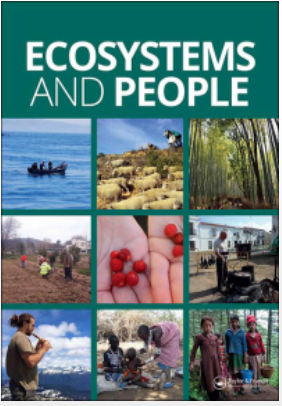印度尼西亚马尼焦湖发展环境可持续的网箱养殖面临的挑战:制度视角
IF 3.7
Q1 Agricultural and Biological Sciences
引用次数: 2
摘要
摘要印尼马尼焦湖是一个复杂的热带系统,其环境状况一直受到罗非鱼网箱养殖活动的影响。环湖地区居住着米南哲族,他们有着强大的习惯法和氏族制度。本文运用制度分析与发展框架,基于面对面的半结构化访谈,旨在了解环境可持续笼式养殖发展面临的挑战。我们的制度分析表明,主要挑战是社区和官员之间的信任水平低,以及正式和非正式制度之间的冲突,这些都阻碍了强有力的规则的出现。这是对公共水池资源管理(CPR)文献的一个特别有趣的理论贡献,因为我们的案例研究是公共水池资源(湖泊)中私人财产养殖的一个例子,CPR文献中对这一动态的研究仍然不足。我们为当地利益相关者以及地区和国家政府提供建议,说明寻求笼文化管理工作规则的当地合法性的重要性。从这一案例研究中吸取的经验教训可能有助于印度尼西亚和全球南方国家其他湖泊的水产养殖管理。本文章由计算机程序翻译,如有差异,请以英文原文为准。
Challenges for the development of environmentally sustainable cage culture farming in Lake Maninjau, Indonesia: an institutional perspective
ABSTRACT The environmental condition of Lake Maninjau, a complex tropical system in Indonesia, has been suffering from the proliferation of tilapia cage culture practices. The area around the lake is inhabited by the Minangese ethnic group, which has strong customary laws and clan system. Applying the Institutional Analysis and Development (IAD) framework and based on face-to-face semi-structured interviews, this paper aims to understand the challenges for the development of environmentally sustainable cage culture farming. Our institutional analysis reveals that the main challenges are low levels of trust between communities and officials, and conflicting formal and informal institutions which have prevented the emergence of strong rules-in-use. This is a particularly interesting theoretical contribution to the literature on the management of common pool resources (CPR), as our case study is an example of private property farming in a common pool resource (the lake), a dynamic which remains understudied in the CPR literature. We provide suggestions for local stakeholders as well as regional and national government related to the importance of seeking local legitimacy of the working rules to govern cage culture. The lessons learned from this case study might be useful for the governance of aquaculture in other lakes in Indonesia and countries of the Global South.
求助全文
通过发布文献求助,成功后即可免费获取论文全文。
去求助
来源期刊

Ecosystems and People
Agricultural and Biological Sciences-Ecology, Evolution, Behavior and Systematics
CiteScore
7.80
自引率
11.30%
发文量
40
审稿时长
42 weeks
期刊介绍:
Ecosystems and People is an interdisciplinary journal that addresses how biodiversity and ecosystems underpin human quality of life, and how societal activities and preferences drive changes in ecosystems. Research published in Ecosystems and People addresses human-nature relationships and social-ecological systems in a broad sense. This embraces research on biodiversity, ecosystem services, their contributions to quality of life, implications for equity and justice, and the diverse and rich ways in which people relate to nature.
 求助内容:
求助内容: 应助结果提醒方式:
应助结果提醒方式:


